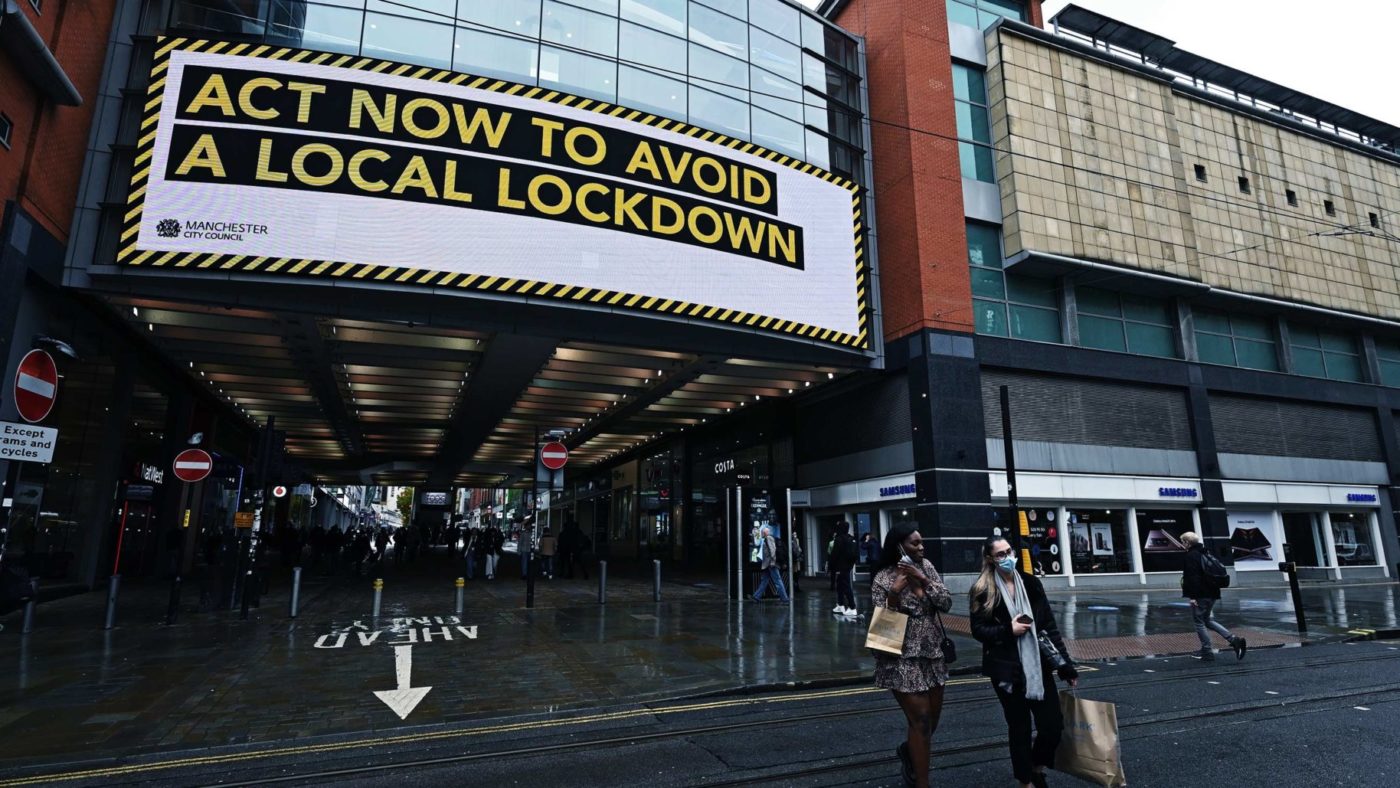Oh, for the simplicity of March. ‘Stay Home, Protect the NHS, Save Lives’ may have been an illusory slogan and a draconian prescription, but at least it was clear.
We now have a baffling patchwork quilt of rules, regulations, guidance and advice: the Rule of Six, 10pm pub closures and all manner of bubbles and exceptions (a legal quagmire expertly critiqued by barrister John McMillan here). As of this week a new Tier system complicates things further. The BBC has even put together a handy postcode look-up tool for people to work out what they can and can’t do in their area.
For the millions of us now in Tier 2, mixing with other households indoors is off limits, but having a pint in a beer garden is fine. That puts pubs and restaurants in an awful limbo – allowed to open, but with trade even more limited and little in the way of government support.
The higher up the tiers you go, the sillier things get. In Tier 3, currently occupied only by Liverpool and Lancashire, pubs can open, but only if they are serving a ‘substantial’ meal. Nor are the rules being evenly applied, however. In Lancashire gyms remain open, in Liverpool they are closed – an ironic approach to a disease which preys on the obese. No wonder MPs and local leaders in Greater Manchester are fighting to avoid their city being plunged into the same regime.
One way to slice the Gordian Knot is simply to institute a short nationwide lockdown, called variously a ‘circuit-breaker’ or a ‘fire-break’. That’s the route now favoured by Keir Starmer, though there are understandable fears that a two-week lockdown could wind up lasting a lot longer.
The arguments are not just between the parties but within them. Bolton West’s Tory MP Chris Green stood down from the Government this week, arguing that the ‘attempted cure is worse than the disease’. Meanwhile the Labour mayors of Liverpool and Greater Manchester wage a very public war on the new restrictions, while their leader calls for a national lockdown in England.
Faced with rules that are simultaneously profuse and diffuse, it’s not surprising that most voters still favour the stiff but simple medicine of a lockdown. But, as Harry Phibbs has rightly argued, the Government would be ill-advised to make policy on the back of opinion polls. If locking down again turned out to be disastrous, few would remember that they supported it at the time.
Yet all these discussions of rules and bubbles, and rows about MPs drinking after 10pm are just distractions from the main issue: why isn’t our testing system up to snuff? From the start of this awful saga, it’s been clear that the key to containing the virus is effective track-and-trace. The reason we’re still talking about the various rules and their nuances is that the central question has not been answered.
It’s always tempting to blame the agent. If only there were someone different at the top – maybe that nice Jacinda Ardern instead of nasty Boris – we’d be doing brilliantly. Others say it’s all about the size of the state or ‘austerity’, ignoring that the likes of Singapore, Taiwan, South Korea and Hong Kong all spend much less than us on health and have handled things far better. More to the point, we are pouring money into test-and-trace to little obvious effect. Indeed, last week only 62.6% of close contacts of those testing positive were reached through the system.
Perhaps a clue to our predicament comes from our continental peers. France’s, with its big, over-centralised state has had many of the same problems the UK has with testing – and most of its big cities are now experiencing a drastic 9pm-6am curfew as a result. Germany, with its federal government and decentralised, competitive and local health system has led the way on testing and has had about half the cases the UK has.
Unfortunately, as Henry Hill argued this week, we can’t simply bolt on ‘best practice’ abroad to our fractured, half-baked system of devolution, where too many people now stand to lose from reform. Instead, we’ll most likely carry on, this year and beyond, with an approach built on muddling through and extemporising – a tax cut here, a new ‘game-changing’ initiative there – and what could be more British than that?
Click here to subscribe to our daily briefing – the best pieces from CapX and across the web.
CapX depends on the generosity of its readers. If you value what we do, please consider making a donation.


